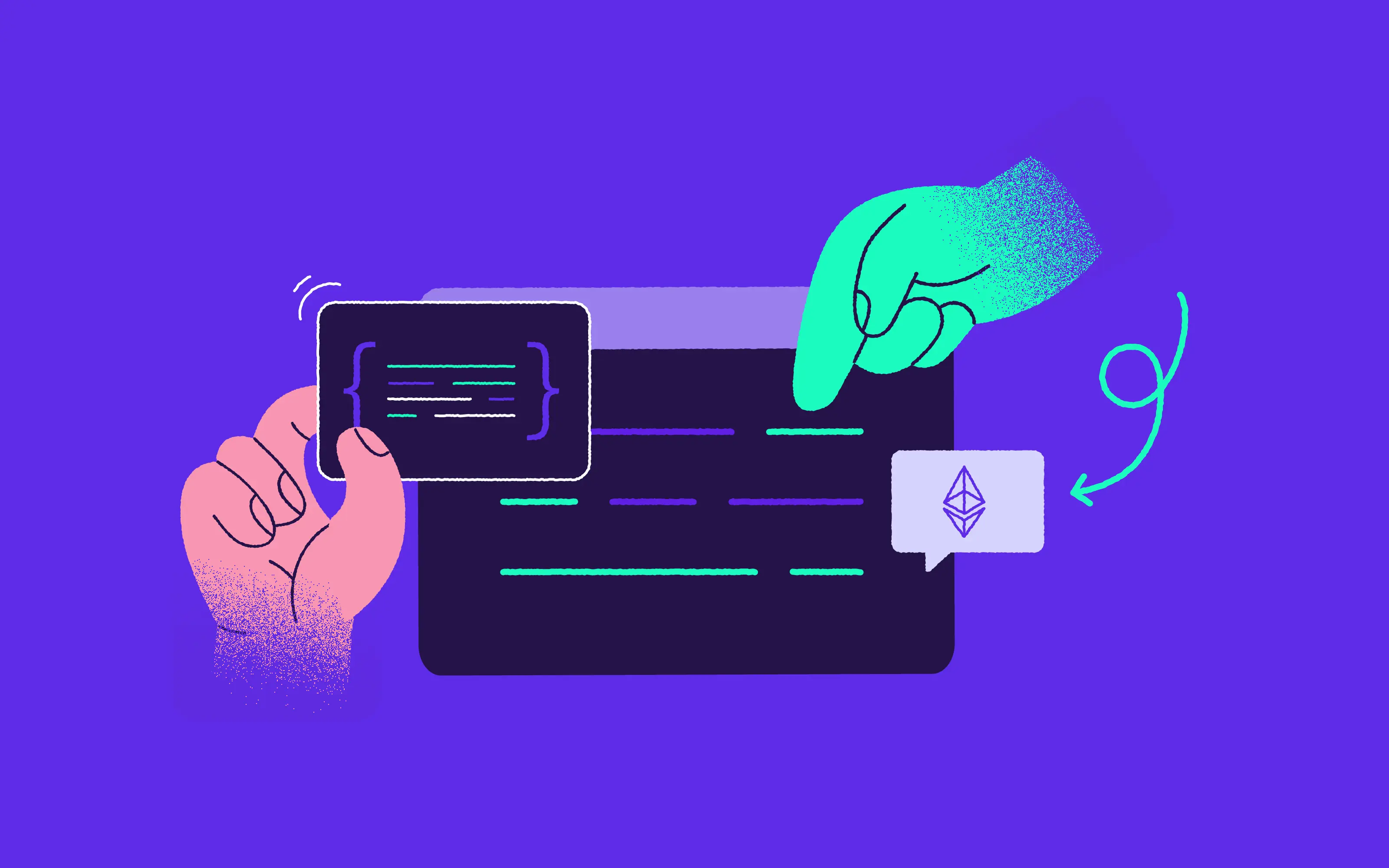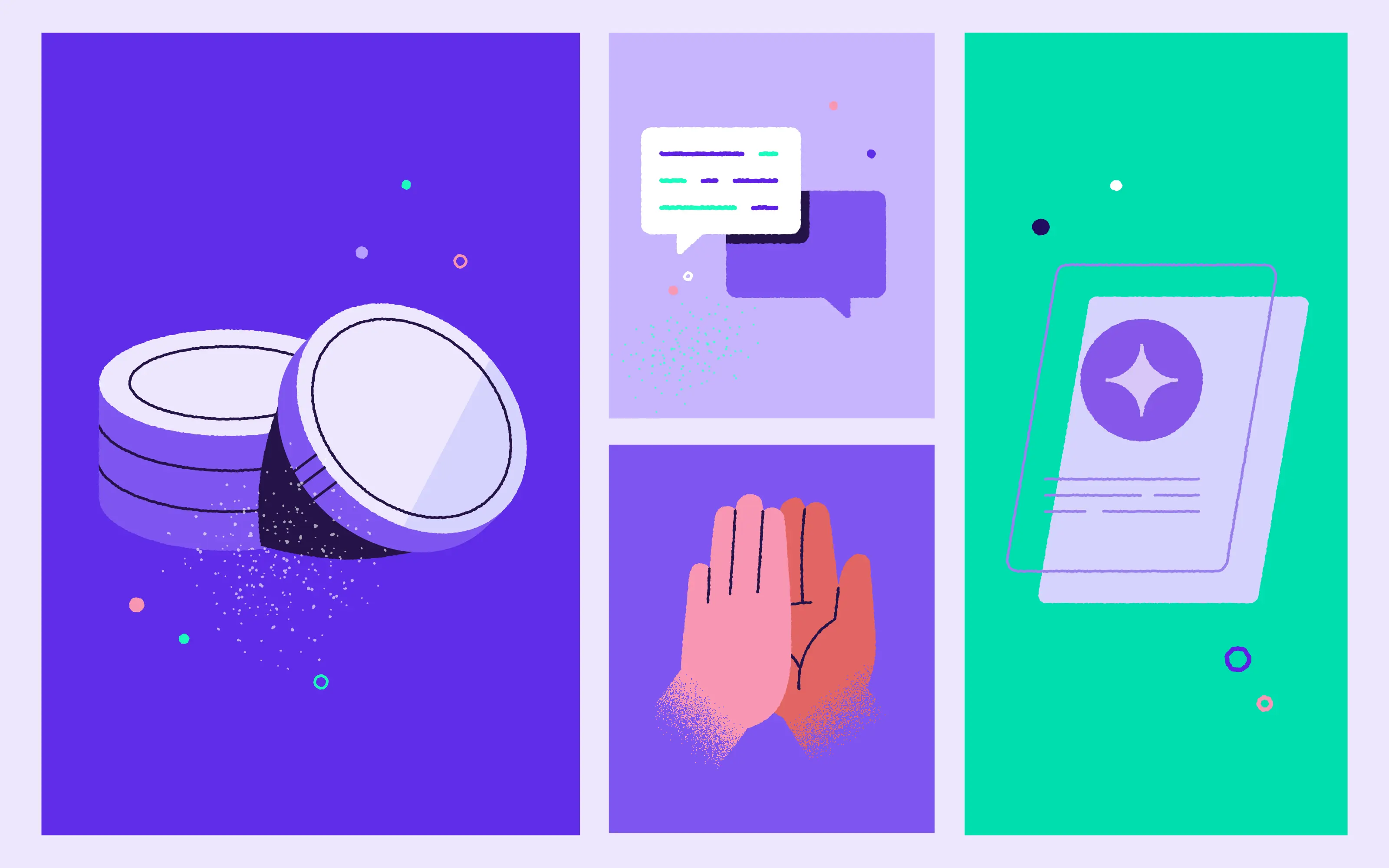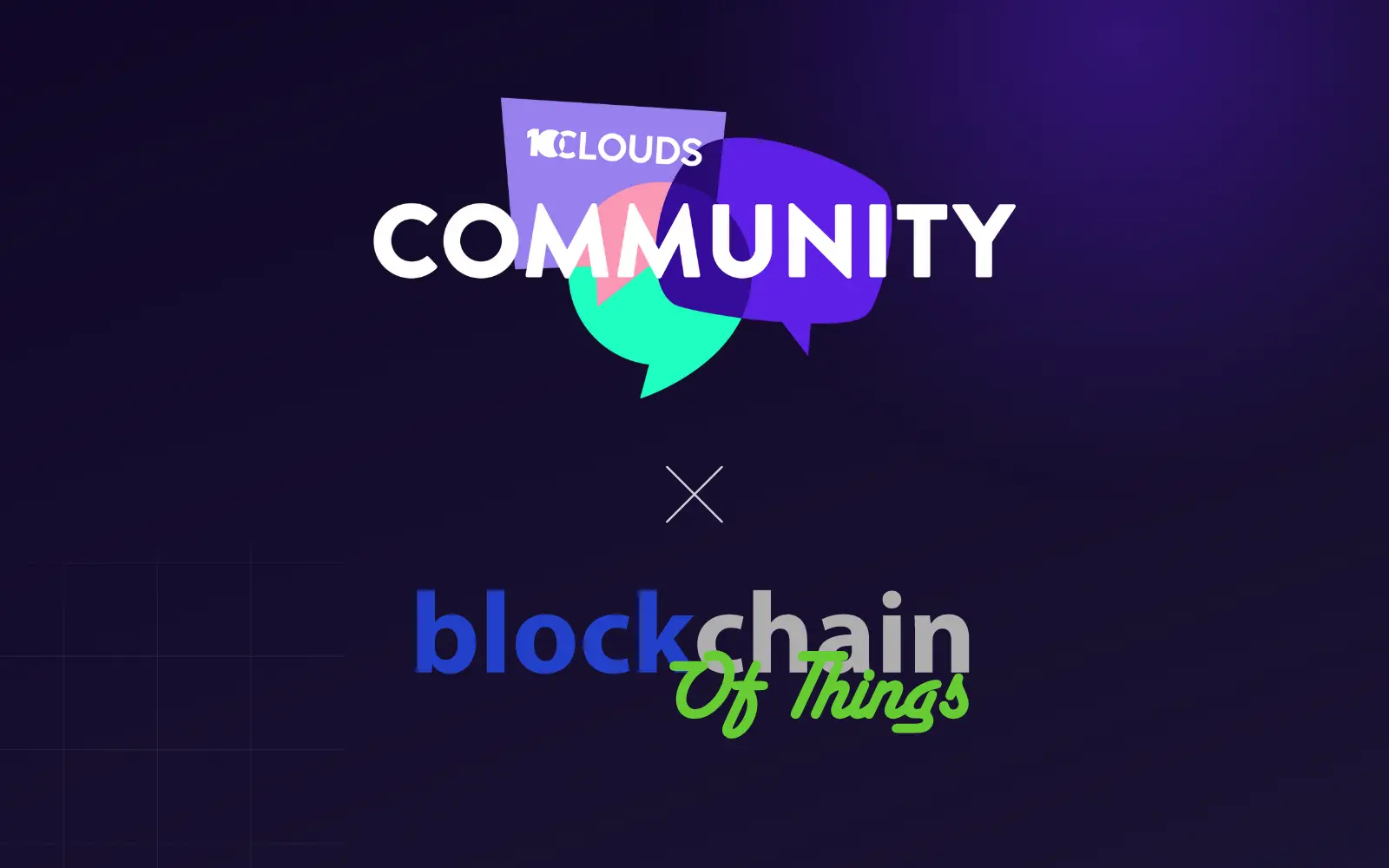
What does Blockchain and the Internet of Things (IoT) have in common? Quite a lot as it happens. Both are major disruptive elements of the modern technological era. Both are also distributed, autonomous and mostly decentralized. All this begs the question: ‘Have we really made full use of the potential that they offer when combined?’ In this read, we'll look at the different kinds of apps that have already been used on the blockchain.
The benefits of pairing blockchain with IoT
First things first - let's take a look at why the Blockchain IoT is inherently much more than just the sum of its parts.
Security: The IoT in and of itself has been known to suffer from a range of security issues, while blockchain by its very nature, possesses in-built security thanks to its extensive use of cryptographic mechanisms.
Trust: Associated with the above, blockchain enables companies to build trust into their IoT data. Each transaction made is carefully recorded and added to a secure, immutable data chain that cannot be changed — only added to. This helps to build customer trust, and in turn, competitive advantage.
Efficiency: Blockchain technology enables IoT processes to be streamlined and it creates new business value across a company’s ecosystem by drawing on the data supplied by IoT devices and sensors.
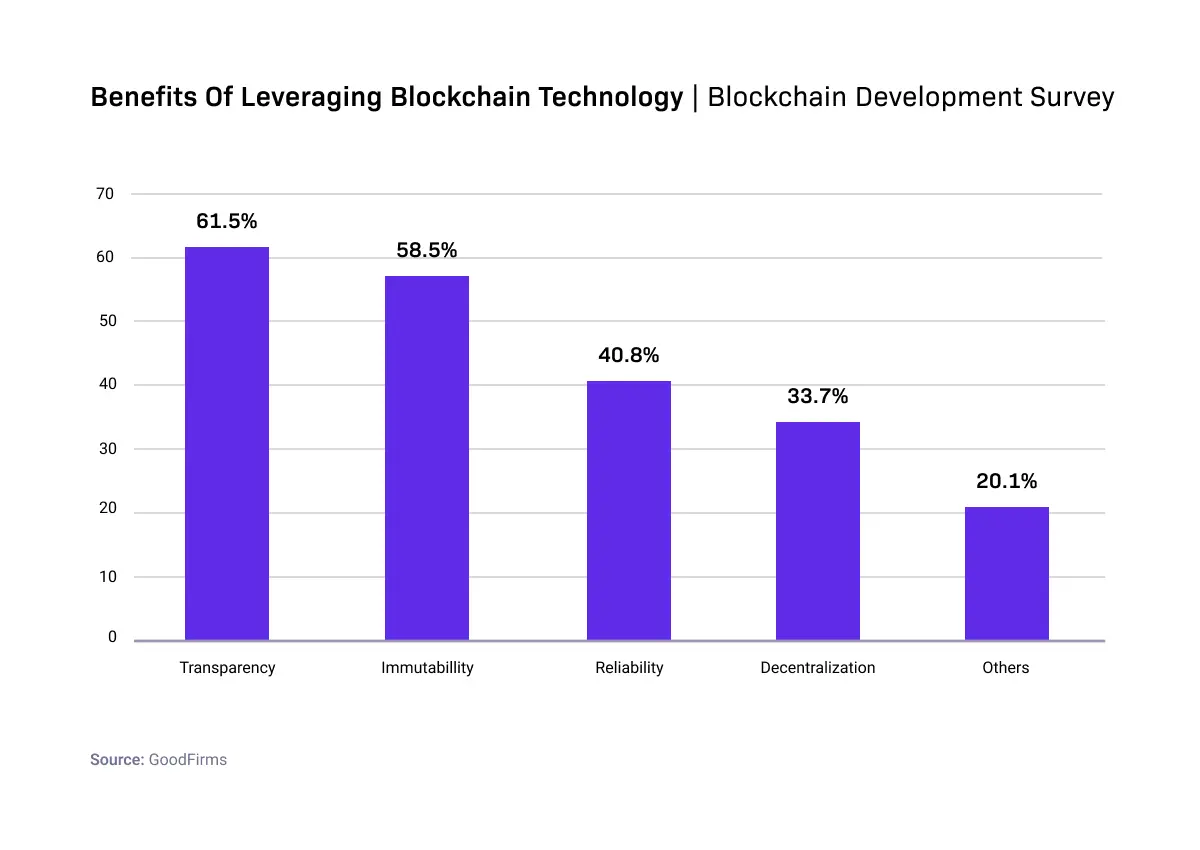
It’s perhaps no surprise that the Blockchain of Things (BIoT) market is growing exponentially and is anticipated to be worth USD 3,021 mln by 2024.
From pharmaceuticals to supply chain management - It’s all about blockchain
The applications of blockchain are almost endless. Many already in use, some being tested, and others still yet to be discovered – and they go beyond digital currencies and money transfers. Today, even Hollywood is adopting blockchain. Let’s explore just a few of the blockchain-based apps that are currently out there, but taking the IoT sphere as a reference.
Golden State Foods is a good example of a Blockchain of Things project in supply chain management. The company specializes in the manufacture and distribution of food and has collaborated with IBM with the aim of optimizing its supply chain using blockchain, particularly in improving the reliability and traceability of the network. IoT sensors are also able to provide valuable information about shipment statuses.
Telstra is an Australian telecommunication company which offers smart home solutions powered by blockchain and biometric security and rely on the storage of sensitive user data on the blockchain. The blockchain’s immutability trait ensures that only authorized people can gain access to smart homes.
Mediledger is a leading blockchain IoT example in pharmaceuticals. It is an app developed to track legal changes prescription medicine ownership. Blockchain technology is well quite to monitoring sensitive healthcare information due to its traceability and transparency. Mediledger ensures that the data stored on its blockchain has the right time stamp and is only accessible to wholesalers, manufacturers, distributors and end customers.
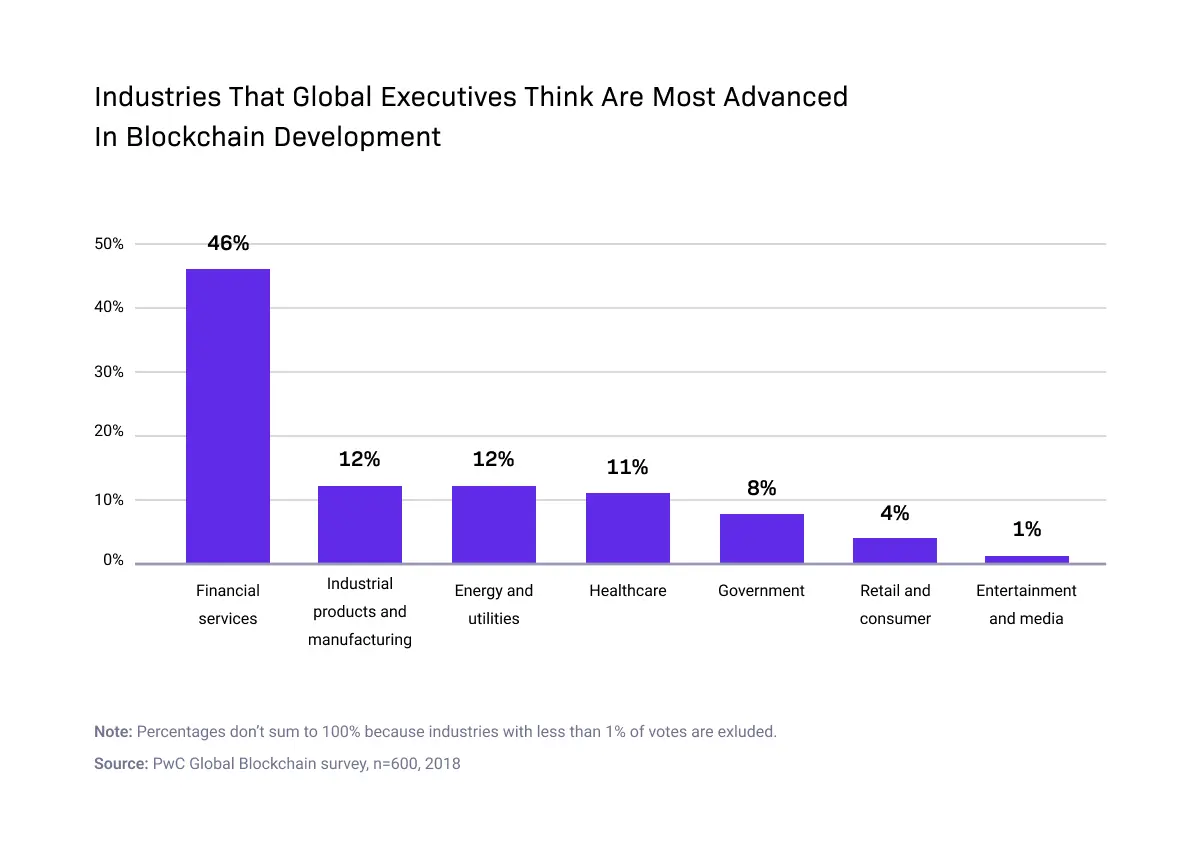
» Read our article to learn more about the use of blockchain outside Bitcoin and unexpected ways of blockchain application
Which blockchain should you build on
Even today for many people, blockchain is synonymous with Bitcoin. The popular cryptocurrency has reached wide audiences and has been riding on a tide of popularity despite the general crypto slump at the end of last year. Bitcoin, which was first created in 2009 on the heels of the economic recession, arguably paved the way for a host of new blockchains, including Ethereum, Ripple, Binance and Cardano to name just a few.
Ethereum has been praised by app developers for its true decentralization and the fact that it has an active community of more than 250 developers. It has also been highly renowned for the fact that it enabled the rise of DApps, which you can read more about here.
Ripple is more focused on financial app development and is known for establishing its own platform to build a blockchain network for businesses by connecting digital asset exchanges, banks, and payment providers.
Yet there are some seasoned blockchain experts who believe that businesses have no need to look beyond Bitcoin when they’re looking to build a new app. One of them is Andre De Castro, CEO of Blockchain of Things, a complete 2nd-layer solution with APIs and drag-and-drop tools.
Andre told us: ”There was a [general belief] that you can't build robust applications on Bitcoin, and Bitcoin is only a means to transmit value or store value. Yes, it's the most robust blockchain in the world. For thirteen years, it's never been hacked. It holds trillions of dollars of people's money and it has the largest footprint on the planet, meaning there are Bitcoin nodes anywhere. So, it makes it incredibly interesting to develop apps upon.”
According to Andre, those developing apps on the Bitcoin blockchain should feel secure in doing so. He says that this blockchain is a particularly good choice for public companies that are looking to get into space and want to build their product on a solid foundation - “Not on the foundation of a chain that once it has a hack, it forks, as we've experienced with other chains.”
Getting started with developing your blockchain-based app
It’s apparent that building a blockchain-based app has many benefits, but where do you start?
At 10Clouds, we believe that it all starts with a solid team, which includes app developers who have strong and expensive experience of blockchain technology. They will be the ones responsible for building your backend, which runs on smart contracts. You’ll also of course need a smart contract developer, and a blockchain architect who will develop the exact use cases for based around customer demands, as well as your classic development team.
The above-mentioned team will help you select the right blockchain solution for your business. Below are a few of the factors that you might want to consider:
- Scalability – how fast should this blockchain be able to scale? Plasma, Lightening or a second-layer blockchains support scalability.
- Support of the blockchain community – are there many resources that will help the team in developing your solution?
- Fit with tech stack product development – is the SDK available for your preferred tech stack if you’re building on an existing product?
- Use cases that will drive transactions – do you know how people will use your application?
- Private or public blockchain – who should be involved in the transaction process? The difference between Intranet and Internet.
Looking for a team to create your DeFi project?
Get in touch with our Head of Sales, Dennis Van Der Vecht, for a free blockchain consultation at dennis.vandervecht@10clouds.com or +48 793 200 141.

